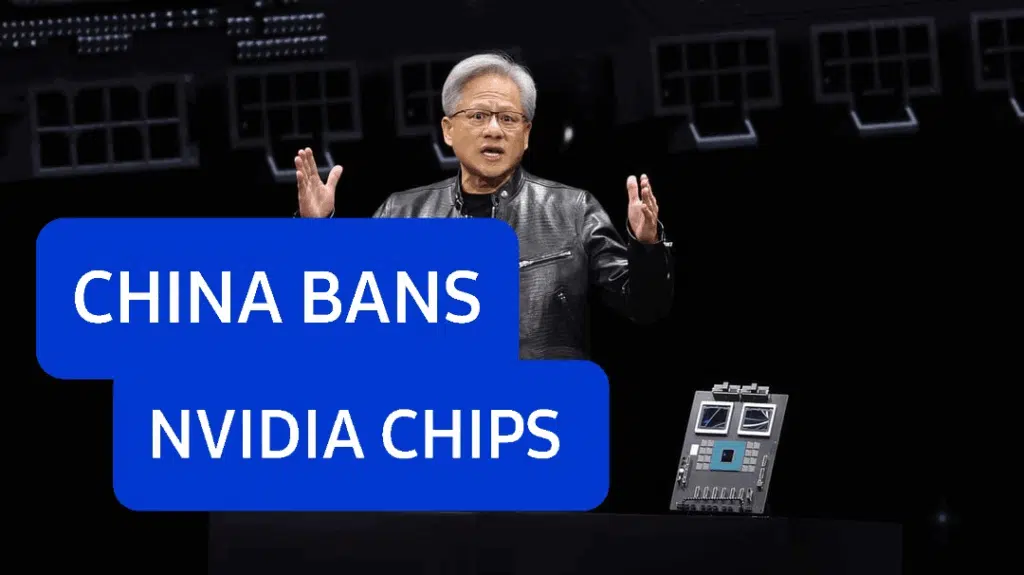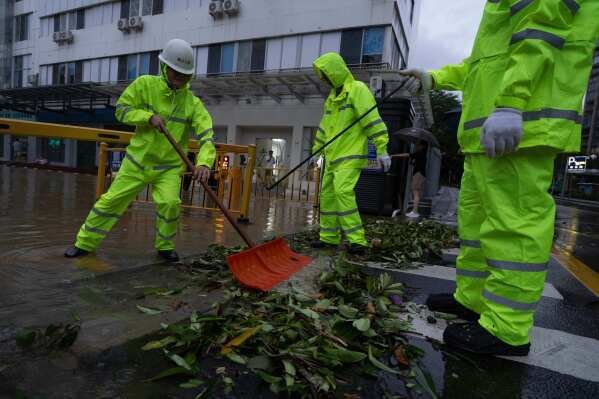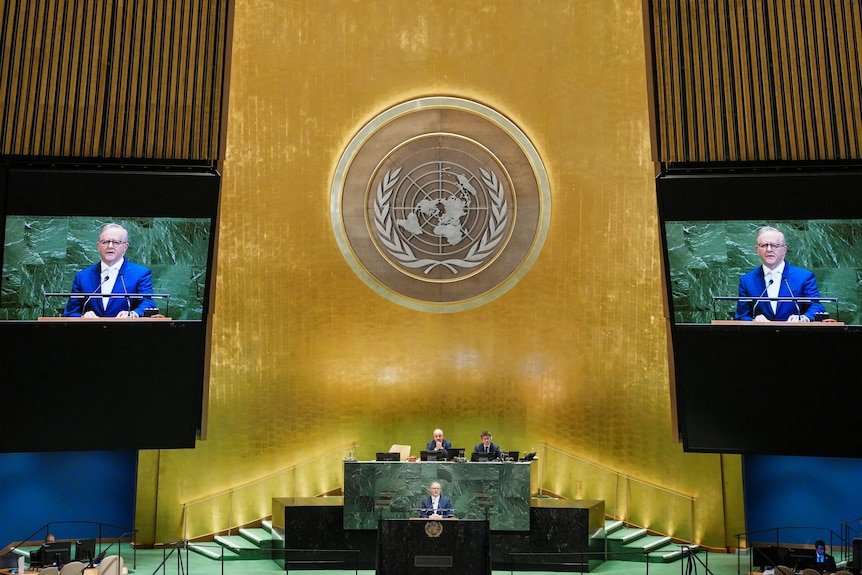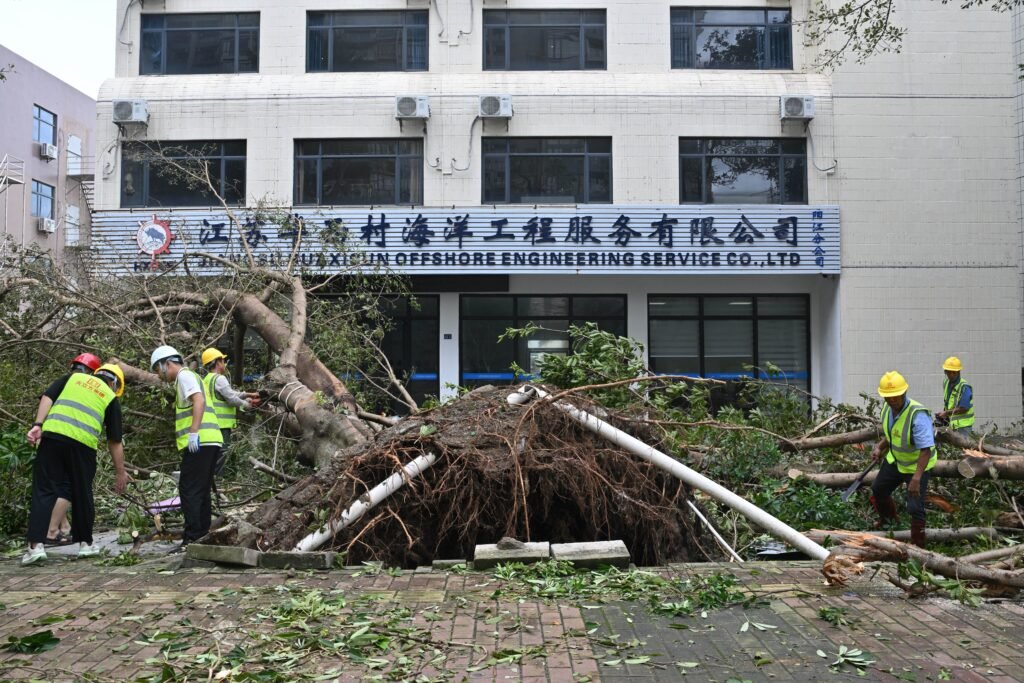
 Getty Images
Getty ImagesThe Chinese government is taking aim at an emotion that has become all too common on the country’s internet – despondency.
This week, China’s Cyberspace Administration launched a two-month campaign to curb social media posts that “excessively exaggerate negative and pessimistic sentiments”. The goal, according to authorities, is to “rectify negative emotions” and “create a more civilised and rational online environment”.
In the crosshairs are narratives like “studying is useless” and “hard work is useless”, as well as stories that promote “world-weariness”.
China has been grappling with an economic slowdown in the wake of a property crisis, high youth unemployment and cut-throat competition for admission to colleges and jobs – all of which have given rise to a sense of disillusionment among its younger generation.
Young people in China “have serious questions about future prospects of their lives” and “must confront the fact that their livelihood is very likely going to be worse than their parents’ generation,” Simon Sihang Luo, an assistant professor of social sciences at Singapore’s Nanyang Technological University, tells the BBC.
And Beijing’s anxiety over the bubbling frustration has shown itself in a wave of sanctions hitting the country’s influencers and social media platforms.
‘Android people’
Last week, well-known content creator Hu Chenfeng had his social media accounts scrubbed of all posts. No-one knows why because Chinese officials gave no explanation. But it’s widely believed that this was in response to a viral comment that he had recently made, classifying people and items as either “Apple” or “Android” – with the latter used to describe things that are inferior to the former.
“Yours is a typical Android logic, Android person, Android qualification,” he rattled off during a livestream that has since been widely shared online.
While the gag was quickly embraced by many Chinese social media users, others accused Hu of sowing social divisions.
Such obvious jokes about inequality, it seems, have become tricky territory – because they reinforce the divides that the Chinese Communist Party would rather people not dwell on.
Censorship is not new to the Chinese internet. Anything that suggests criticism of the Party, its leaders, or touches on controversial topics that have political implications, quickly disappears.
What is unusual about this campaign against pessimism is that it seems to target a range of online behaviour that could create or add to a sense of negativity.

 Getty Images
Getty ImagesZhang Xuefeng, a famous online tutor known for his fiery rhetoric on education and social issues, sparked controversy earlier this month when he pledged to donate at least 100 million Chinese yuan ($14m; £10.4m) if Beijing decided to invade Taiwan. But it wasn’t until this week that he became the target of Chinese censors.
His social media accounts – which have millions of followers – have been blocked from gaining new followers, local media reported on Wednesday.
When asked about this, one of Mr Zhang’s employees told state-owned news outlet The Paper that he was “reflecting” on it.
Again, it’s hard to know why he is being reprimanded but some have wondered if it’s the underlying message in his broadcasts – in an unfair world, you must make only practical choices. And many students and parents follow him for his brutally honest advice – instead of telling young people to follow their dreams, he often told them they must face the reality their exam scores and financial pressures dictated. His was a platform that may well have been ideal for despondency.
Always sunny on the Chinese internet
It’s not just individuals though. China wants social media platforms to play a part too in its massive internet clean-up.
This month, the Cyberspace Administration said it would mete out “strict punishments” against social media apps Xiaohongshu, Kuaishou and Weibo for failing to rein in “negative” content, such as “sensationalising celebrities’ personal updates” and other “trivial information”.
“A clear and healthy cyberspace is in the interests of the people,” said the Cyberspace Administration.
But any attempts to keep China’s cyberspace unnaturally sunny is sure to come at a cost.
“The expression of pessimist sentiments doesn’t necessarily mean a fundamental rejection of participating in the labour market and society at large,” says Dr Luo.
But being deprived of “relief after venting these sentiments”, he says, “might make it even worse for their collective mental status”.
Yet the pressures – the ones that are pushing more Chinese youth to quit the rat race, “lie flat” and take their frustrations out online – remain. Many of them have been moving back into their parents’ homes, unable to find work, or craving a break from exhausting jobs – it’s happening enough that they call themselves “full-time” children.
And recent research shows that there indeed is growing pessimism about future prospects in China. Experts say the Party is well-aware of it, which is why it is trying to crack down on the evidence. But will that work?
“If anything, contemporary Chinese history has repeatedly demonstrated that top-down ideological campaigns can hardly eradicate the social roots of problems,” says Dr Luo.
“Even with a powerful government like the Chinese one, it is hard to arrest pessimist sentiments when the economy looks bleak, the job market is cruelly competitive, and birth rate hits rock bottom.”







